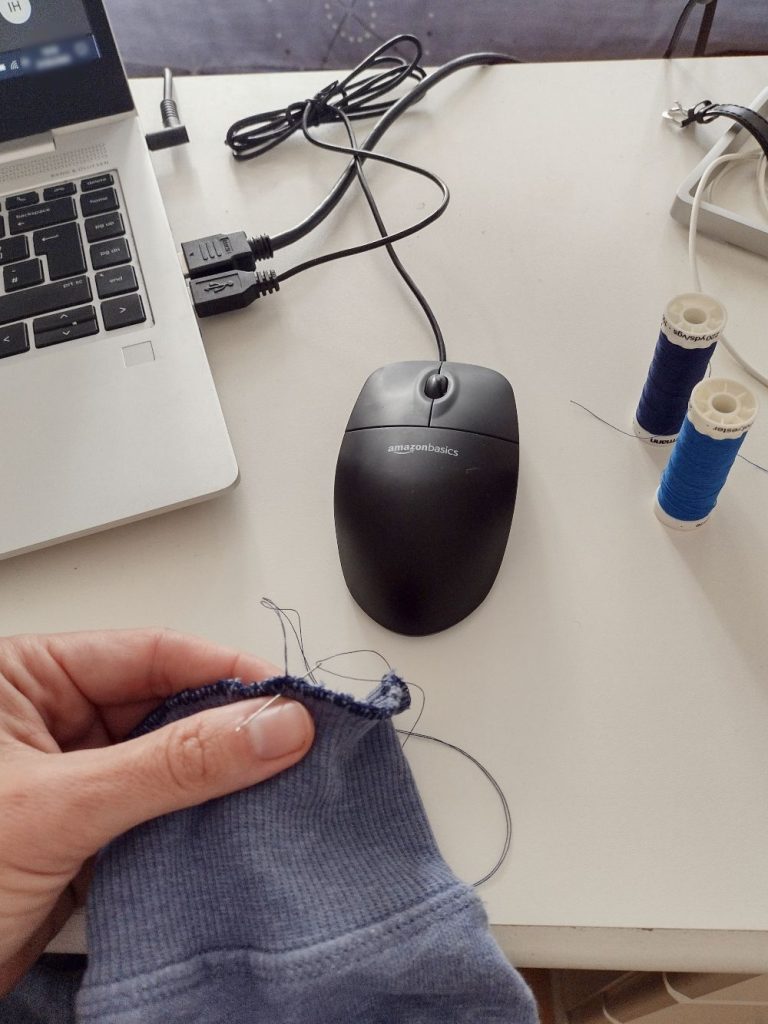It’s the little things that make the difference for climate change: very little things in this case. Can’t get much littler than needle and thread and lots of tiny stitches…
Here’s a snapshot of my desk one afternoon last month. In the middle of an online meeting item which did not concern me, I got out my sewing basket and got on with mending my very favourite hoodie so that I can wear it a few more years. I’m oversewing the edge of the sleeve. It’s a bit of a bodge but still strong enough to wear, and smart enough for snuggling on the sofa…

The cost of this mend is a needle and thread, my knowhow and my time. The cost of chucking the hoodie and getting a new one shipped from the other side of the world, with all the water and fuel used to grow/make the materials and put them together, is far greater. See IMSE’s blog series on the environmental impact of fast fashion, written by Imperial PhD student Nadine Moustafa. Reforming the linear production model for clothing is a big undertaking. The Ellen MacArthur Foundation’s report A New Textiles Economy imagines what this might look like.
Getting on with my mending has been on my mind since I attended a meeting of the London Councils’ One World Living network, to talk about how universities (including Imperial College London) and councils could collaborate to reduce Londoners’ consumption emissions from electronics, food, plastics and textiles. Their One World Living action plan for textiles includes setting up reuse/repair hubs, so I thought for the moment I’d get on with being my own.
Working from home is also reducing my carbon emissions as I’m not using any transport infrastructure. Not using a car is item no.4 on the Grantham Institute’s list of 9 things you can do about climate change. Repairing my own clothes comes under no.8 and writing this blog comes under no.9!
Find out more about London Councils’ actions on climate change
Sustainability is one of IMSE’s core research themes. Find out more about our sustainability work: read our briefing paper on carbon capture and utilisation in the UK.